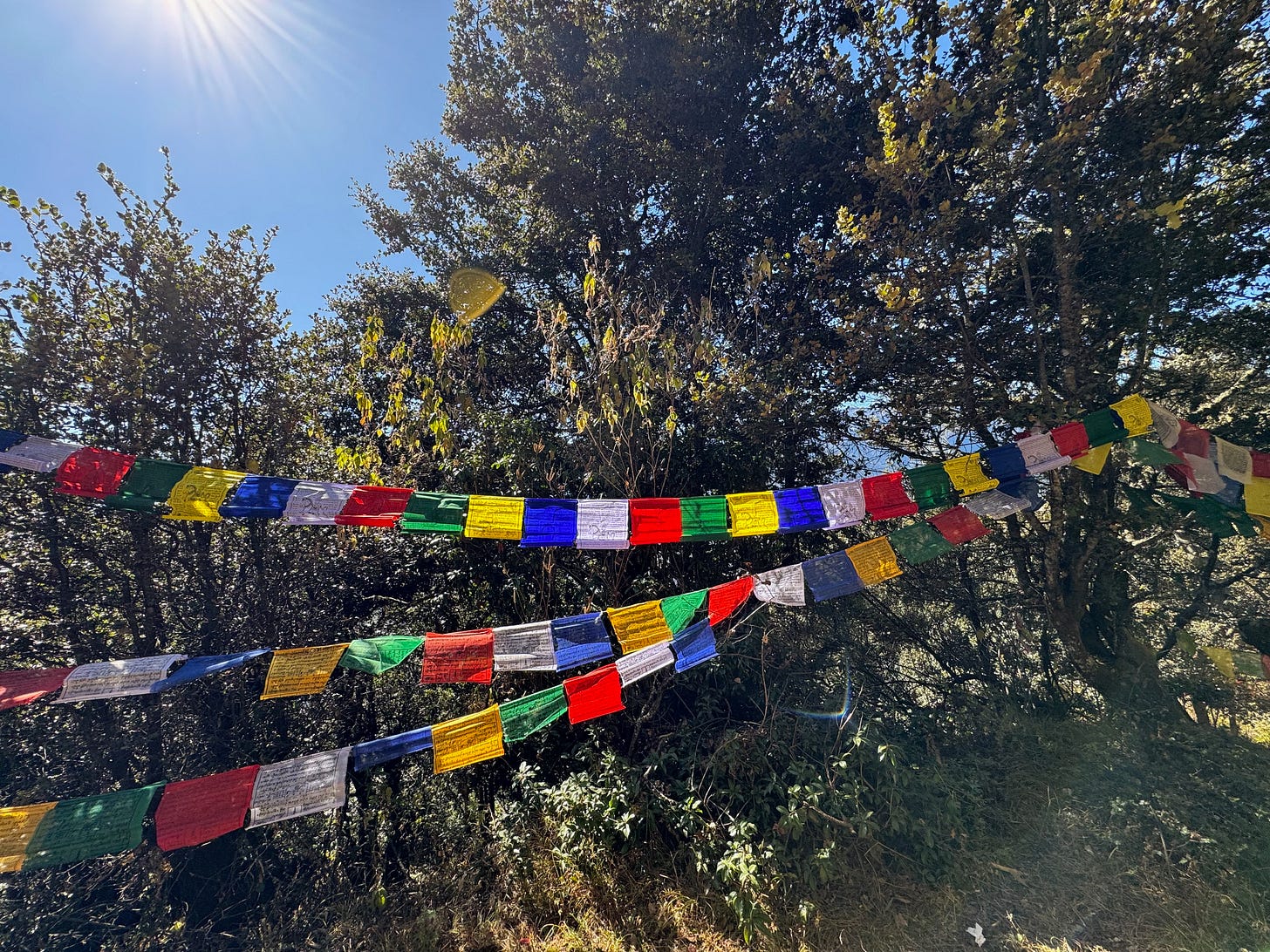Day 15 - Joy
Living Christ Sangha - Advent Ango Practice Period
Readings
(click the header to view the readings)
Isaiah 13:6-13
Hebrews 12:18-29
John 3:22-30
Reflection
I used the break afforded by yesterday’s video-based post to give myself some time to read ahead for the remainder of Advent and try to get a thematic handle on the readings and identify the topics from them that I would explore. I failed.
There is simply too much apocalyptic judgment in the readings to say something interesting every day. For a person of a certain persuasion (comfortable with retribution and substitutionary atonement), the readings may offer some sense of hopeful expectation, but in a pretty twisted way. I’m uncomfortable with both retributive justice and substitutionary atonement theology, so many of these readings leave me cold and foraging for something in them that I can kindle into an ember of hope.
Finding that ember of hope has been getting increasingly challenging due to how the daily lectionary works. The readings tell a single story over a number of days, so I may have already found what speaks to me in a story and written about it well before the story ends. For example, consider Isaiah’s story of the unfaithfulness of the people leading to God’s judgment. The lectionary readings take many days to tell this story, and even if I find an interesting nugget that gives me something to write in the first day or so, I struggle after I’ve explored that nugget. Given this challenge, I don’t believe I can write interesting posts using only the readings for the next 9 days, so I’m going to change my approach.
I will still include the readings at the top of each post, and if I do find something in them that I believe I can fruitfully ponder and write about, I will use it as a topic for the reflection. In cases where I cannot find a toehold in the daily readings, I will present and explore a topic or idea that is prevalent in both Christianity and Buddhism and that is thematically related to Advent.
Joy: The Gift of Aliveness
Joy is the theme of the third week of Advent, and today is Gaudete (“Rejoice”) Sunday. One would not know this from the readings, except for the tiny hint given by John the Baptist at the end of the reading in John where he is discussing the arrival of Jesus and says, “For this reason my joy has been fulfilled.”
Joy is a central concept in both Christianity and Buddhism. Christians see joy as a much larger, more resilient form of contentment than happiness. This is because happiness is dependent on external circumstances. Happiness depends on what happens. Joy does not have this dependence, because it is an internal state that animates our lives and leads to deep satisfaction and meaning.
In Christianity, joy is one of the “fruits of the Spirit,” along with love, peace, forbearance, kindness, goodness, faithfulness, gentleness and self-control. In Buddhism, joy is one of the “four immeasurable minds” that are the elements of true love, the other three being compassion, loving-kindness, and equanimity.
It is important to understand that joy is not a feeling, but a state of mind that can be cultivated and maintained much longer than feelings can, which come and go like leaves floating past us down a rapidly moving stream. In Christianity, joy arises as a result of the indwelling of the Holy Spirit. In Buddhism, it is a fruit of mindfulness.
In his book Living Buddha, Living Christ, Thich Nhat Hanh connects these two sources of joy, positing that Holy Spirit and the spirit of mindfulness are very closely related. He defines the Holy Spirit as “the energy sent by God,” and he states, “To me, mindfulness is very much like the Holy Spirit. Both are agents of healing.”
The cultivation of joy is healing to us and to our world. It does not prevent aging, sickness, death, or loss, but somehow it redeems those afflictions. Archbishop Desmond Tutu says that joy does not “save us from the inevitability of hardship and heartbreak. In fact, we may cry more easily, but we will laugh more easily, too. Perhaps we are just more alive.”1 In his foreword to Living Buddha, Living Christ, Brother David Steindl-Rast discusses this aliveness as he introduces Thich Nhat Hanh’s thoughts. He says:
Twice in this book Thich Nhat Hanh puts before us a powerful image of Christian legend: In midwinter, St. Francis is calling out to an almond tree, “Speak to me of God!” and the almond tree breaks into bloom. It comes alive. There is no other way of witnessing to God but by aliveness. With a fine instinct, Thich Nhat Hanh traces genuine aliveness to its source. He recognizes that this is what the biblical tradition calls the Holy Spirit. After all, the very word “spirit” means “breath,” and to breathe means to live. The Holy Spirit is the breath of divine life.”
The Advent call to joy that we hear today and observe this week isn’t about feeling a fleeting giddiness. It is about inviting the Spirit to inspire us and to animate our being, bringing forth joy and Her other fruits. It is about mindfully cultivating joy and the other immeasurable minds that arise in true love. It is about coming fully alive. This is our call. This is our gift.
Prayer
Mindful Spirit, give me grace to know that even in the mid-winter deadness that challenges bring, I will blossom with life and joy if only I awaken to your presence. Amen.
His Holiness the Dalai Lama and Archbishop Desmond Tutu, The Book of Joy, p. 12.


